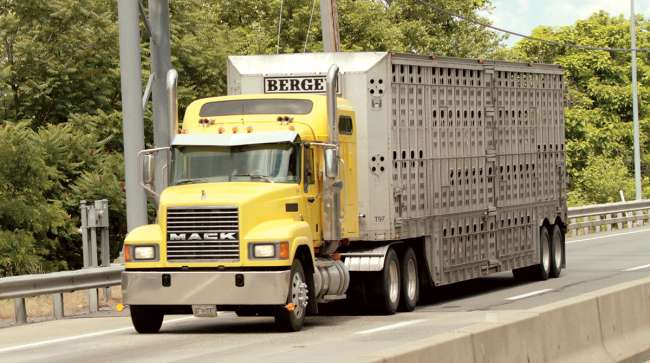Senior Reporter
Senate Continues Consideration of Transportation Funding Bill

A fiscal 2019 transportation funding bill that would call attention to concerns livestock haulers have raised about electronic logging devices is included in a legislative package under consideration in the Senate.
The appropriations leadership has the transportation bill, which also would fund programs at the Department of Housing and Urban Development, with legislation that would fund the departments of Interior and Agriculture as well as the Environmental Protection Agency and financial services agencies.
On July 26, the bill’s sponsors were accepting amendments from colleagues to pave the way for passage. Senate floor managers have yet to indicate when they intend to schedule final votes on the legislation.
Last month, the appropriators approved the $71.4 billion transportation measure by 31-0 vote. Under the bill, DOT would receive $26.6 billion in discretionary spending.
The bill was amended in committee to include a provision that would direct DOT to communicate with trucking and agriculture executives, federal policymakers and the Department of Agriculture to address concerns the livestock-hauling industry has raised about ELDs.

Shelby
Senate funding leader Richard Shelby (R-Ala.) has emphasized the bills are free of controversial provisions and non-germane policy attachments that have triggered partisan opposition in prior years.
“We are today debating both of these appropriations bills and more on the Senate floor,” Shelby said July 24. “What changed was the mindset of appropriators on both sides of the aisle who embraced a willingness to sacrifice partisan [policy] riders and priorities outside the committee’s jurisdiction for the good of the process. … This approach has yielded meaningful results thus far.”
Overall, the transportation bill includes $1 billion for BUILD infrastructure grants, formerly TIGER grants, while the Federal Motor Carrier Safety Administration would be provided $667 million.
The House’s version goes further by proposing to deny funding through fiscal 2019 for the enforcement of the ELD rule on livestock haulers. Responding to such concerns, meanwhile, Congress passed a fiscal 2018 funding bill signed by President Donald Trump that directed FMCSA not to enforce the ELD rule for agriculture-related transportation through Sept. 30.
The ELD rule effective Dec. 18, 2017, requires carriers to equip commercial vehicles with the devices to electronically track drivers’ hours of service.
The Heritage Foundation, a conservative Washington-based think tank, is critical of the Senate legislation for providing funding for “failed, wasteful, and inefficient programs that do not meet the standard of the core constitutional responsibilities of the federal government” as well as continuing to prop up the Highway Trust Fund. The fund, which DOT uses to assist states with infrastructure projects, is headed toward insolvency in the coming years.
“Congress should take steps this year to address the chronic spending problem plaguing the [Highway Trust Fund]. It should leverage every legislative opportunity to end the irresponsible and unsustainable practice of trust fund bailout,” the group wrote July 25.
To schedule consideration for the funding bills, Majority Leader Mitch McConnell (R-Ky.) stripped the chamber of its traditional August break. Besides the fiscal 2019 funding bills, McConnell’s team plans to consider policy bills on aviation, water programs, immigration and military defense. They also are reviewing the qualification of Trump’s nominee for the Supreme Court, Brett Kavanaugh.
Trump has pressed House and Senate leaders to advance separate funding bills, instead of merging the measures into a massive 12-bill “omnibus.” Trump signed the fiscal 2018 “omnibus” earlier this year.

